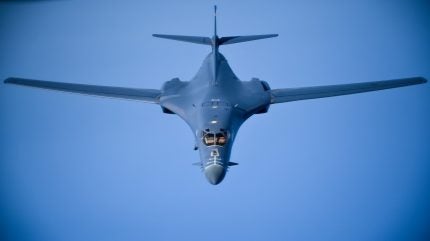
The US Department of Defense (DoD) is considering revising the 2022 Nuclear Posture Review to maintain effective nuclear deterrence amid perceived growing threats from China and Russia and the potential absence of nuclear arms control agreements after February 2025.
DoD Deputy Assistant Secretary Richard Johnson indicated that the presence of multiple nuclear-capable adversaries poses a challenge to the security of the US and its allies.
Speaking during a panel discussion at the Center for Strategic and International Studies Project on Nuclear Issues in Washington, D.C., Johnson said that while the foundational principles of nuclear deterrence remain valid, ongoing modernisation efforts may not suffice.
The DoD, along with the National Nuclear Security Administration, has initiated measures to bolster nuclear deterrence and flexibility while mitigating risks associated with the nuclear modernisation programme.
Among these initiatives is the introduction of the B61-13 gravity bomb, which can be deployed via aircraft, alongside enhanced readiness levels for Ohio-class submarines equipped with nuclear armaments.
The US Department of Energy’s National Nuclear Security Administration is responsible for producing the B61-13, a modern variant of the B61.
Earlier this month, the department submitted a report to Congress, detailing the US’ nuclear employment strategy.
Referred to as the 491 Report, this report outlines changes from previous guidance and addresses the new deterrence challenges posed by the growth, modernisation, and increasing diversity of potential adversaries’ nuclear arsenals.
Key directives from the report include strategies to deter multiple nuclear-armed adversaries, the integration of nonnuclear capabilities to support nuclear deterrence, and a focus on escalation management in response planning for limited nuclear or major nonnuclear threats.
The report acknowledges that deterrence alone cannot address strategic dangers.
It highlights the importance of arms control, risk reduction, and nuclear nonproliferation in addressing these challenges.
US DoD CFO Mike McCord stressed that the department is progressing towards achieving the mandated clean audit, though significant work remains.




